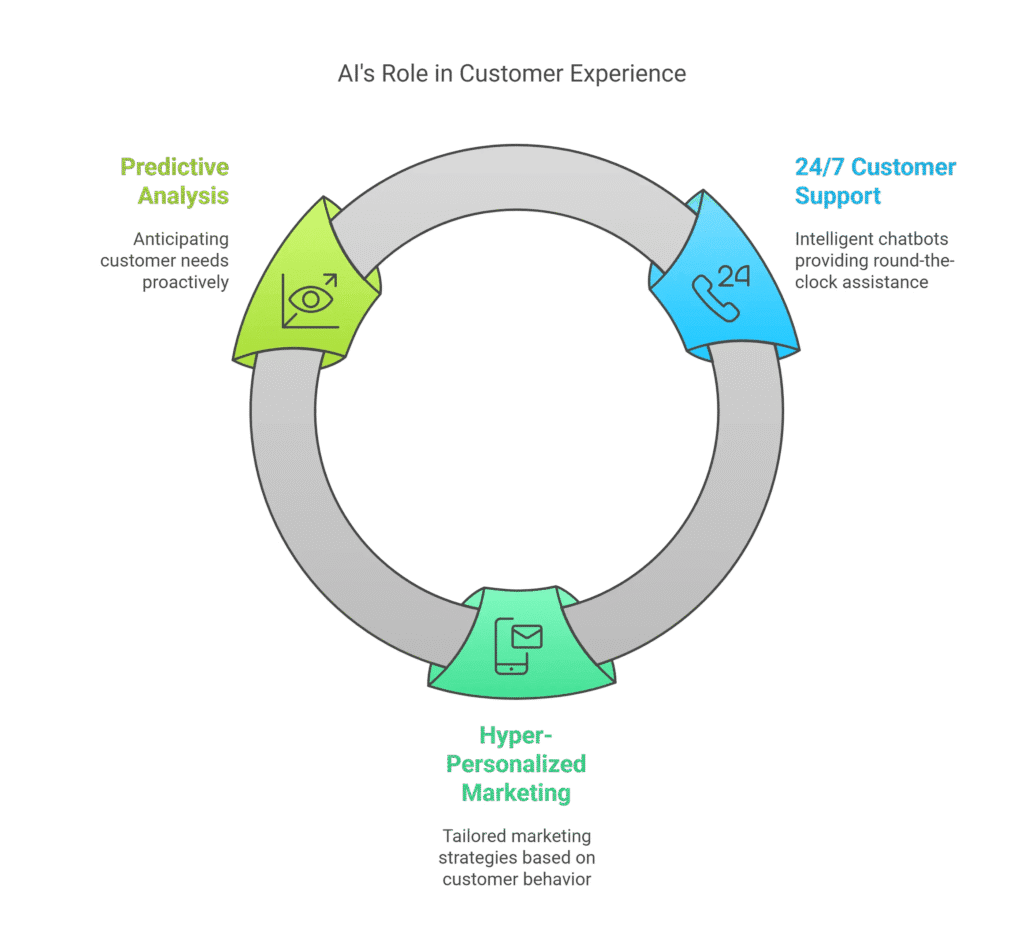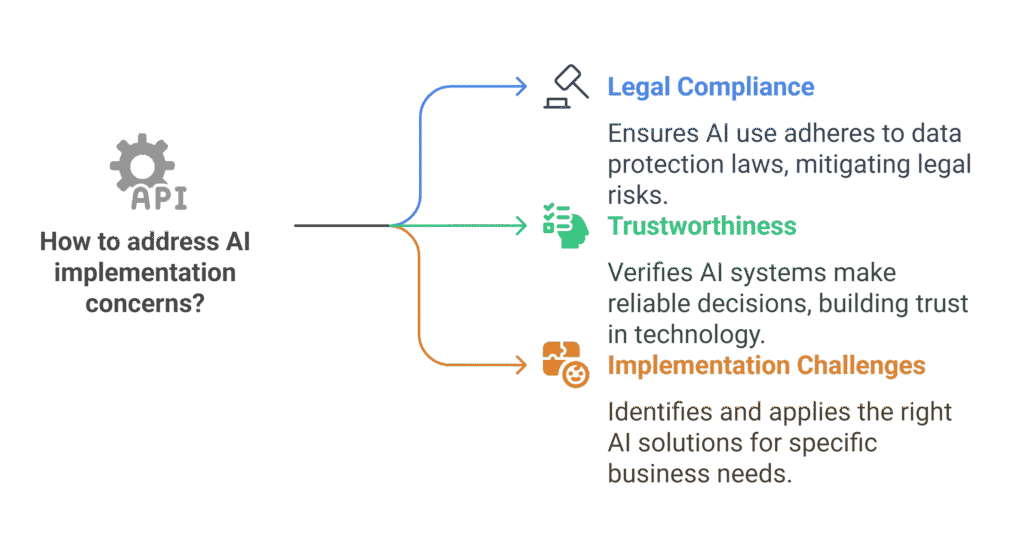In a world where technology evolves at lightning speed, small businesses stand at a fascinating crossroads. I’ve spent years watching the AI revolution unfold, and let me tell you – we’re just getting started. The question isn’t if AI will transform your small business, but how dramatically it will reshape everything you know about running one.
The AI Revolution Is Already Here
Small business owners often ask me, “How do I implement AI into my business?” The truth is, you’re probably already using some form of AI without realizing it. From the chatbot on your website to the analytics tools tracking customer behavior, artificial intelligence has quietly integrated itself into daily operations.
According to recent research, 77% of companies are either using or exploring AI in their businesses. This isn’t just big corporations – this includes the coffee shop down the street, the local accounting firm, and the boutique marketing agency.
How AI Will Transform Small Business Operations
AI isn’t just another tech trend – it’s fundamentally changing how small businesses operate. Here’s what the future holds:
Time and Money Savings
The most immediate benefit? AI tools dramatically reduce the time spent on repetitive tasks. Imagine cutting your administrative workload by 40% – what would you do with those extra hours?
A small retail business owner I know implemented AI for inventory management and saved nearly 15 hours weekly while reducing overstocking costs by 23%. The technology paid for itself within three months.
Enhanced Customer Experiences
AI-powered tools are revolutionizing customer service through:
24/7 customer support via intelligent chatbots
Hyper-personalized marketing based on customer behavior
Predictive analysis to anticipate customer needs before they arise

Levelling the Competitive Playing Field
Perhaps most exciting is how AI is democratizing capabilities once reserved for corporate giants. Cloud-based AI solutions now give small businesses access to enterprise-level tools at fraction of the cost.
Who Benefits Most From AI in Businesses?
While virtually all industries stand to gain, some sectors are experiencing particularly dramatic transformations:
Retail: From inventory optimization to personalized shopping experiences
Professional services: Automating document review, research, and basic client communications
Healthcare: Streamlining appointment scheduling, billing, and preliminary diagnostics
Food service: Optimizing ordering, reducing waste, and personalizing customer experiences
Implementing an Effective AI Policy
One question that frequently appears in the mind map is “What is an AI policy for a small business?” This is crucial as you navigate this new territory.
A robust AI policy should address:
Ethical use of customer data
Transparency about AI implementation
Human oversight of AI systems
Regular evaluation of AI effectiveness
Compliance with relevant regulations
As Restack.io notes, “The businesses that thrive won’t be those that simply adopt AI, but those that develop thoughtful policies around its implementation.”
Addressing Common Concerns
Is AI Taking Over Businesses?
While 83% of companies claim AI is a top priority in their business plans, the reality is more nuanced. AI excels at handling repetitive, data-heavy tasks, but human creativity, emotional intelligence, and strategic thinking remain irreplaceable.
The most successful businesses will blend AI efficiency with human ingenuity.
What Are The Risks?
The mind map highlights several concerns small business owners have:
Legal risks: Ensuring AI use complies with data protection laws
Trustworthiness: Verifying AI systems make reliable decisions
Implementation challenges: Finding the right solutions for your specific needs
These are valid concerns, but they’re manageable with proper planning and education.

Practical Steps to Start Your AI Journey
Identify pain points in your current operations where AI could help
Start small with one focused application rather than overhauling everything
Measure results to understand the actual impact on your business
Upskill your team to work effectively alongside AI tools
Stay informed about emerging AI capabilities relevant to your industry
The Future Outlook
Which industries will gain most from AI? While retail giants like Walmart are making headlines with AI implementations (as noted in the mind map), small businesses across sectors stand to benefit enormously.
The most promising applications include:
Generative AI for content creation and design
Predictive analytics for inventory and cash flow management
Conversational AI for customer service
Process automation for administrative tasks
Final Thoughts
The AI revolution isn’t coming—it’s here. For small business owners willing to embrace these technologies thoughtfully, the future looks incredibly bright. The question isn’t whether you can afford to implement AI, but whether you can afford not to.
As you navigate this exciting frontier, remember that AI is a tool to enhance your business’s human elements, not replace them. The businesses that thrive will be those that find the perfect balance between technological efficiency and the personal touch that makes small businesses special.
What’s your next step in bringing AI into your small business journey?



